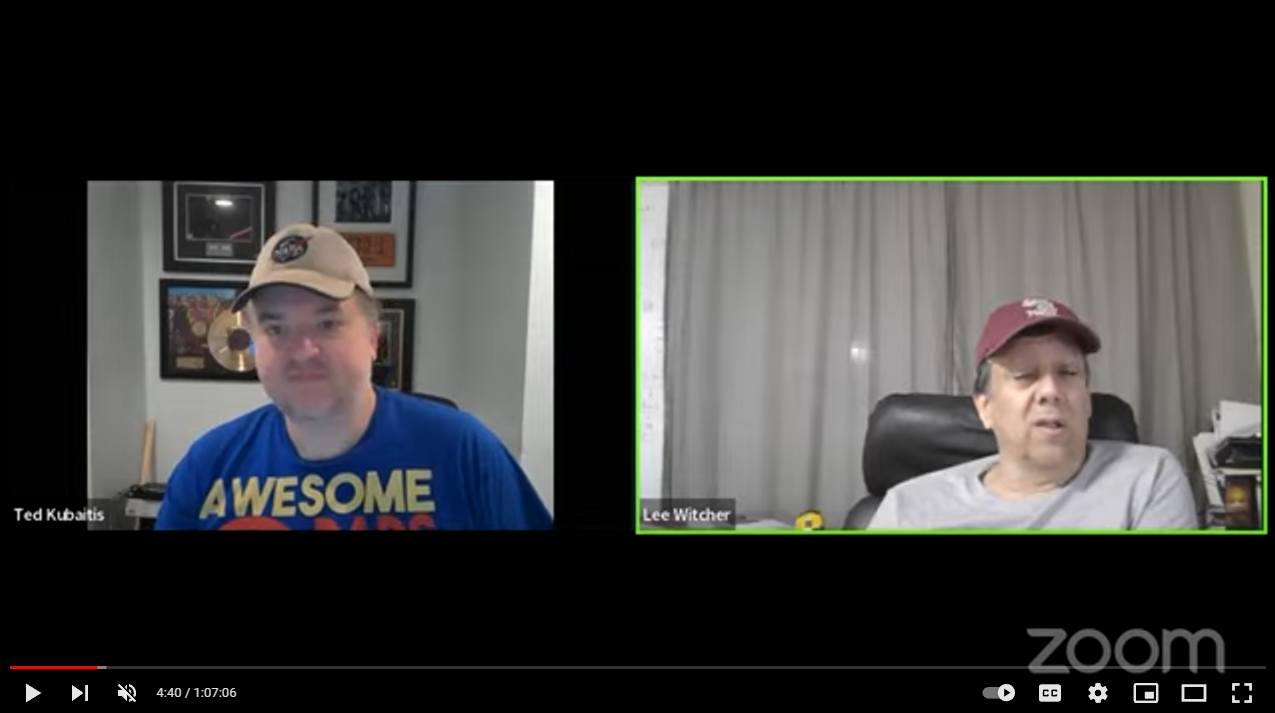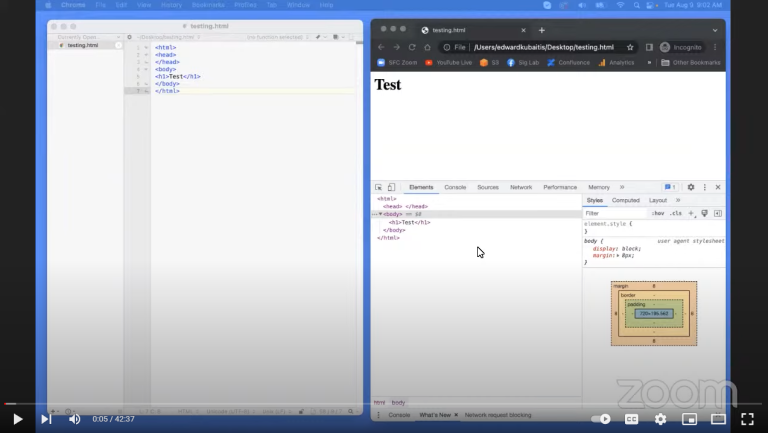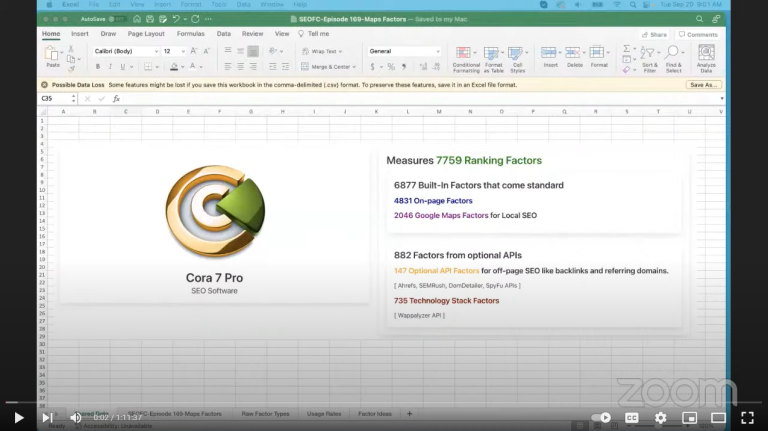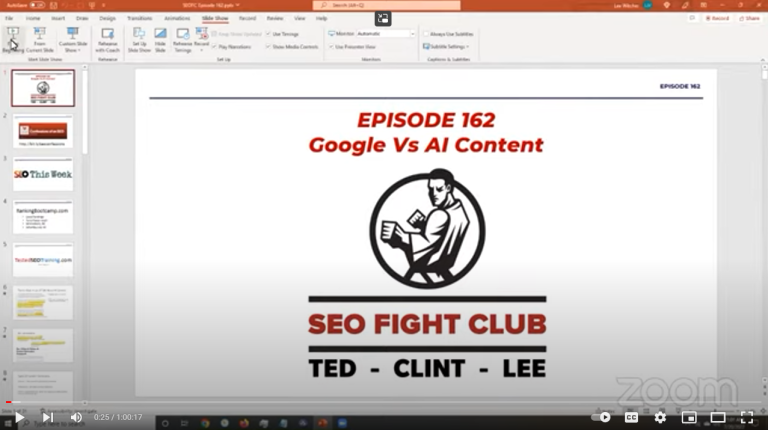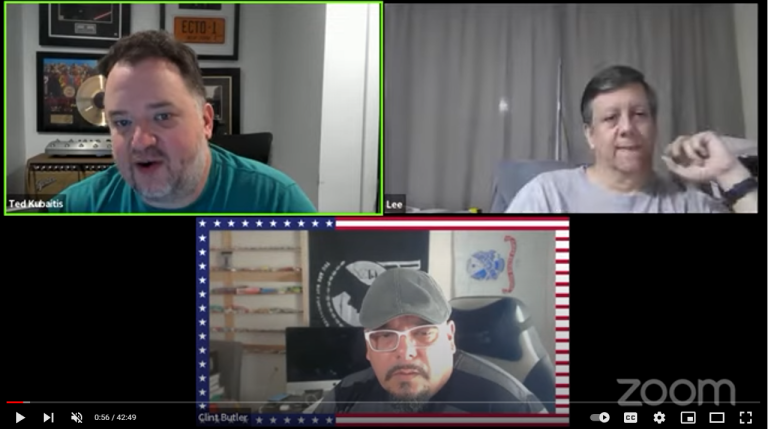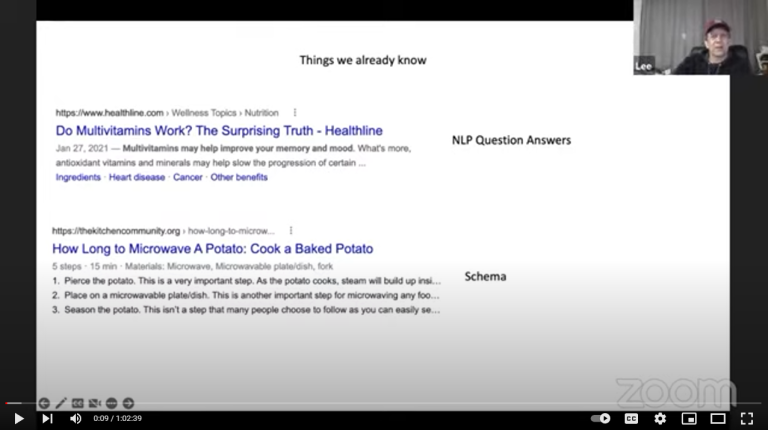SEO Fight Club – Episode 160 – Wasting Time & Money
SEO Fight Club / By
“Exploring The Fairness Of Google’s Keyword Cannibalization Process”
– We recently discussed keyword cannibalization in SEO Fight Club and exploring how to define it formally with data.
– It seems like Google has an opportunity cost when it comes to the decision making process of keyword cannibalisation.
– I was working on a project where the page I was targeting had the same keyword mentioned once or twice, so Google moved my page towards that action instead until i removed it from my page.
– An alternate hypothesis emerged while discussing with a colleague; suggesting that Google might be testing alternate views for similarity between pages rather than just looking at obvious data points.
– We also considered whether there is any element of fairness involved if two pages score similarly for one keyword and whether google splits test different versions to decide which works best.
– Ultimately, we questioned whether anyone has seen this occur in real life?
==========
“Cannibalized SEO: Avoiding Time And Money Wasted”
– I ran a series of SEO volatility reports and noticed some pages from one website were cannibalizing each other for the keyword “DUI lawyer Los Angeles”.
– Surprisingly, for this particular domain, other pages on the website were more similar to the page being cannibalized than not.
– This led me to question my definition of similarity or explore what else could be going on.
– I was also passionate about formalizing a definition of it based on data that we have gathered.
– Carolyn is working on her podcast and exploring how to know if your SEO is working?
– Clint has offered up today’s episode topic: wasting time and money in SEO.
– He acknowledges his own experience with wasting tremendous amounts of time and money when getting into SEO as he tried targeting five or six keywords per page across 25,000 SKUs in 500 product categories which amounted to trying to target a quarter million keywords!
==========
“Testing Fundamental SEO Truths: Avoiding Costly Mistakes”
-Attempting to SEO for a quarter million keywords can create scalability problems due to the time spent rank tracking.
-I learned that measuring SEO does not have ROI and instead I switched to using organic revenue as my indicator of successful SEO.
-By doing this, any changes in the pipeline would be quickly seen through this highly sensitive measure.
-When it comes to testing, accepting theories blindly can lead to wasting money and time while getting back basic fundamentals which repeat over again is key in avoiding these issues.
-Glenn’s latest test has found there are truths about SEO which should always be followed or else risk negatively affecting your efforts.
==========
“Testing For Trustworthy Data: A Risk Mitigating Strategy”
-I have found a way to quickly spot check for trustworthy data and articles.
-By vetting out the good sources from the bad, I am able to trust the data more easily.
-To learn SEO quickly, it is important to be in an environment where you are not afraid of making mistakes.
-When I was in retail, I took their poorest performing store as a sandbox to test ideas before rolling them out elsewhere with great success.
-I recommend this same strategy of testing on one safe place first as it mitigates risk and can bring about strong results if done correctly.
==========
“Cloning Websites For Testing: A Challenging Exploration”
– Clients often think that success can only be found on a website, however there are other options.
– Sometimes when testing new ideas it’s important to find existing websites and clone them to test the idea without interfering with anyone else’s business or content.
– Testing things like punctuation doesn’t really have an effect in SEO, however content readability does matter.
– Testing controversial things is great as long as there’s not one clear answer
– this allows you to challenge your own beliefs and learn something from the results.
==========
“Achieving The Best Results Through Unexpected Measures”
-Exploring questions like what degree of similarity do pages have to be and how to define them can yield valuable information
-Testing something that appears low value, such as punctuation, may actually be beneficial in certain cases
-Chasing core web vitals grades for the sake of higher rankings is a waste of time and money -Removing page loading indicators quickly goes a long way towards improving core web vital grades

